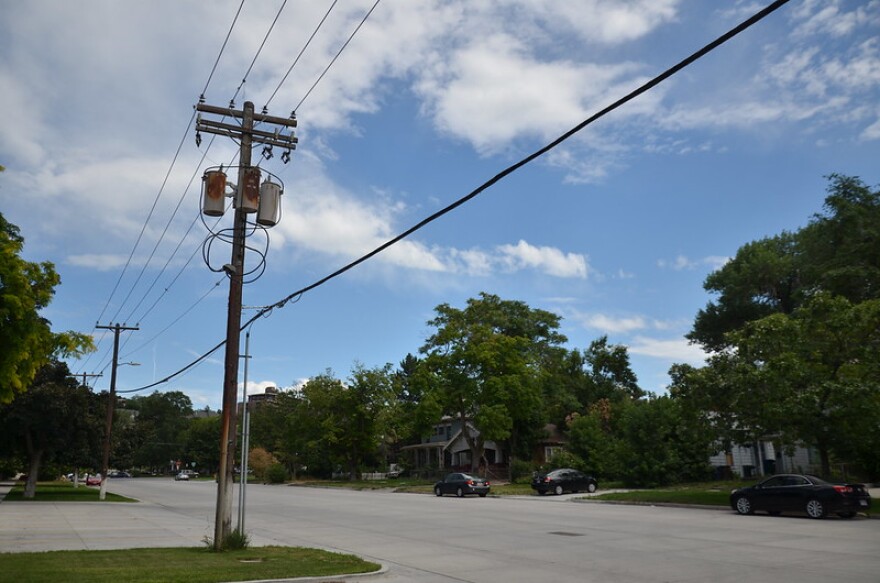Some power companies in the West have turned to “power shutoffs” in an effort to prevent and contain wildfires. High winds can damage transmission lines which can spark nearby dry vegetation.
Rocky Mountain Power is the largest energy company in Utah. Two years ago, it introduced the option for the shutoffs for when wildfire risk is high. But the “last resort” option hasn’t been exercised since it was established, according to David Eskelsen, a spokesperson with the company.
“Our expectations this year is we hope that these kinds of measures are not necessary, but we know that the best option for the company and for our customers is to be prepared,” Eskelsen said.
He said the company has taken other wildfire safety precautions for longer than the shutoff program has been around, like turning off specific transmission lines in extreme weather events. However, worsening drought and fire seasons in the state prompted the company to add this precautionary measure.
The southwest corner of the state is served partly by Dixie Power, which is taking a different approach, according to Chief Operating Officer Colin Jack. He said they don’t have plans for preventative shut offs — though he said the company has also implemented wildfire safety measures.
Dixie Power and St. George recently launched a campaign that will alert people to cut down on energy use.
“What really triggers the alert is if we're capacity constrained, probably from a wildfire,” Jack said. “If we all reduce a little bit, then nobody has to go all the way out — and that's what we're trying to prevent.”
The alert system will notify people in St. George if it's a green, orange or red day which is determined by wildfires burning in the area. Those correspond to how much energy they should be using.






